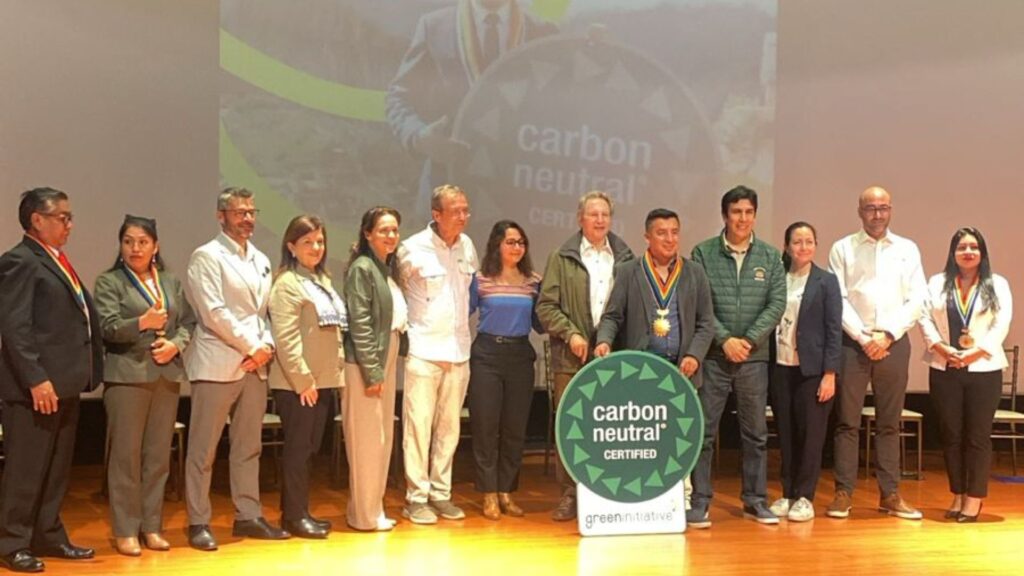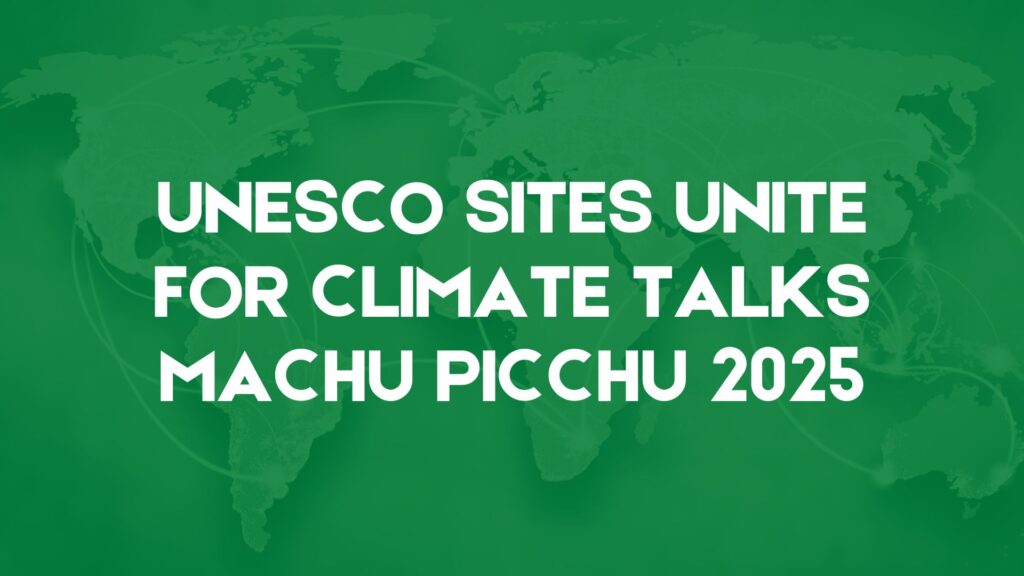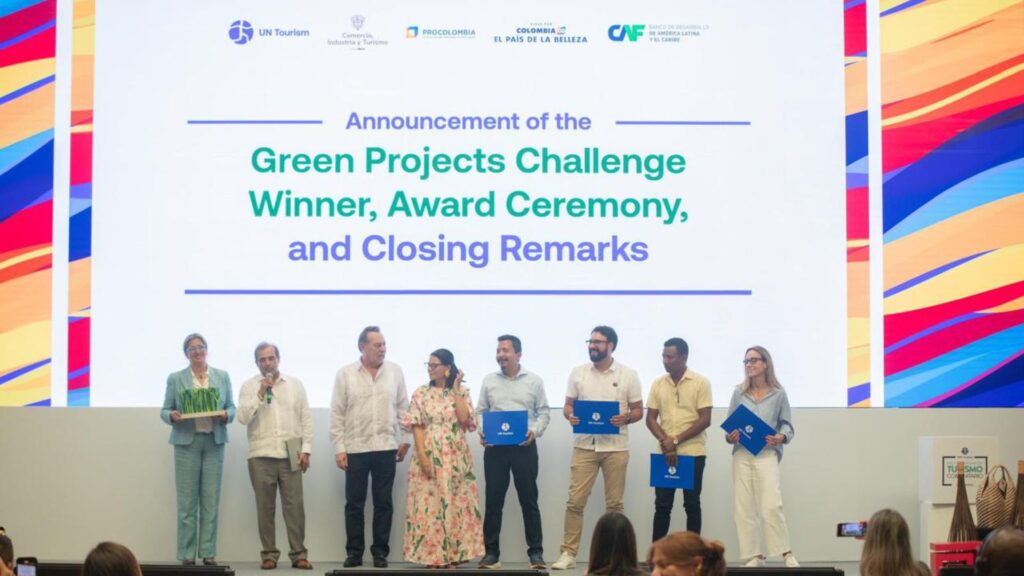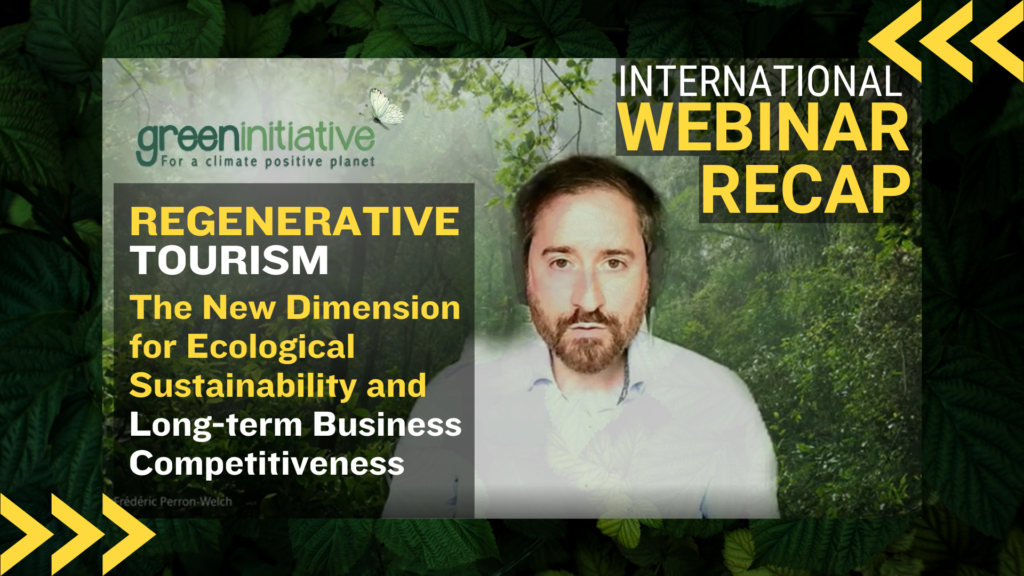Tourism in the Age of Artificial Intelligence: The 26th UN Tourism General Assembly Marks a New Era of Global Cooperation
Riyadh Hosts the Largest UN Tourism General Assembly in History The 26th UN Tourism General Assembly opened this week in Riyadh, Saudi Arabia, gathering more than 160 delegations of ministers, private sector leaders, and organizations under the theme “AI-Powered Tourism: Redefining the Future.”This historic event — the largest in the organization’s 50-year history — highlights how digital innovation, sustainability, and cooperation are shaping the next generation of global tourism. According to Gulf News, Riyadh’s role as host city symbolizes the Gulf region’s growing influence in sustainable tourism and digital transformation — key pillars of Saudi Vision 2030. AI and Climate Intelligence: Aligning Innovation with Responsibility As artificial intelligence revolutionizes industries worldwide, the tourism sector stands at a crossroads: it must innovate while preserving its social and environmental essence. This year’s Assembly, aligned with UN Tourism’s AI for Good initiative, focuses on how AI can strengthen jobs, empower small businesses, enhance destination management, and accelerate progress toward the Sustainable Development Goals (SDGs). “This week marks a decisive moment for our sector: an opportunity to shape the growth of tourism through greater connectivity, sustainability, investment in human capital, and AI-driven innovation,”said Ahmed Al Khateeb, Saudi Arabia’s Minister of Tourism. The global conversation mirrors insights shared in Reuters’ sustainability feature, which explores how AI is driving smarter, more sustainable tourism worldwide. Responsible Innovation: AI and the Human Side of Travel Artificial Intelligence is not only transforming how destinations operate — it is also redefining how travelers dream, plan, and connect.According to The Guardian, nearly 20% of young adults already use AI to design their holidays, signaling a profound behavioral shift in how tourism experiences are created. But innovation must remain responsible, as emphasized by the OECD: algorithms must respect cultural authenticity, inclusivity, and local identity.In this sense, AI in tourism is evolving from automation to augmentation, empowering communities and travelers to make sustainable choices while enriching the human experience behind every journey. Building the Future of Tourism with Data, Transparency, and Action The Assembly reinforces a core message: data defines direction. Sustainability must be measurable, verifiable, and transparent — a principle central to both AI ethics and climate governance. As emphasized by the World Economic Forum’s 2025 report, data-driven strategies are key to transforming tourism into a resilient, low-carbon sector that fosters inclusive development. At Green Initiative, we help turn these principles into measurable impact through our suite of climate intelligence platforms. Together, these tools enable destinations and enterprises to measure, reduce, and offset their emissions — ensuring that innovation leads to verified climate and nature positive results. Saudi Arabia’s Leadership and Vision 2030 Hosting the General Assembly cements Saudi Arabia’s leadership in global tourism transformation. Guided by Vision 2030, the country invests in sustainable infrastructure, digital innovation, and human capital development to position tourism as a central driver of national diversification. Coverage by Arab News highlights the country’s inclusive approach — bringing together public, private, and multilateral stakeholders to redefine the sector’s future. “Tourism is one of the most powerful forces for prosperity and understanding in the world,”said Al Khateeb. “Guided by Vision 2030, we are proud to welcome the world with the spirit of Saudi hospitality that defines who we are.” Meanwhile, Europe continues to advance the dialogue on digital transformation in tourism. As reported by Cadena SER, the Tourism Innovation Summit (TIS 2025) in Seville has become a global benchmark for smart tourism — complementing Riyadh’s leadership with a strong European commitment to data transparency and sustainability. A Shared Commitment to Climate and Nature Positive Tourism For 50 years, UN Tourism has promoted economic opportunity, cultural understanding, and peace through travel. Today, that mission evolves into a new frontier — where AI, climate intelligence, and nature-based solutions merge to accelerate verified decarbonization. This transition aligns with frameworks such as the UNEP’s advancing circular-economy platform for tourism and the Glasgow Declaration on Climate Action in Tourism, which provides a shared commitment and framework for decarbonizing tourism operations worldwide. It also builds upon the UN Tourism Climate Action Platform and the joint UNWTO–UN report on Climate Action in the Tourism Sector, which together reinforce the sector’s alignment with the Paris Agreement and the goals of the 2030 Agenda for Sustainable Development. Together with the World Economic Forum’s “Travel and Tourism at a Turning Point” report, these frameworks outline the collaboration needed to make climate and nature positive tourism the new global standard. As shown during the Assembly’s Associate Members meeting, the success of sustainable tourism depends on collaboration between governments, businesses, and communities — mirroring Green Initiative’s own approach of forging multi-sector alliances to accelerate measurable decarbonization and ecosystem restoration. Our partnerships in Machu Picchu, Cabo Blanco, and Costa Rica’s Osa Peninsula demonstrate that verified climate and nature positive tourism can drive regeneration, strengthen communities, and inspire global transformation. Looking Ahead: The Intelligence of Nature The future of tourism will be defined by intelligence — both digital and ecological. From the mountain trails of Machu Picchu to the desert skylines of Riyadh, the convergence of AI and climate action is rewriting what it means to explore responsibly. In this journey, the role of organizations like Green Initiative is not just to measure progress, but to ensure that the world travels toward a truly climate and nature positive planet. Green Initiative advances climate and nature positive transformations through measurable climate action, verified certifications, and intelligent digital tools. Our mission is to help organizations and destinations quantify, reduce, and offset emissions while restoring ecosystems and creating long-term value for people and planet. We provide the transparency and rigor needed to align with the Paris Agreement and the 2030 Agenda for Sustainable Development. This article was written by Yves Hemelryck from the Green Initiative Team.









